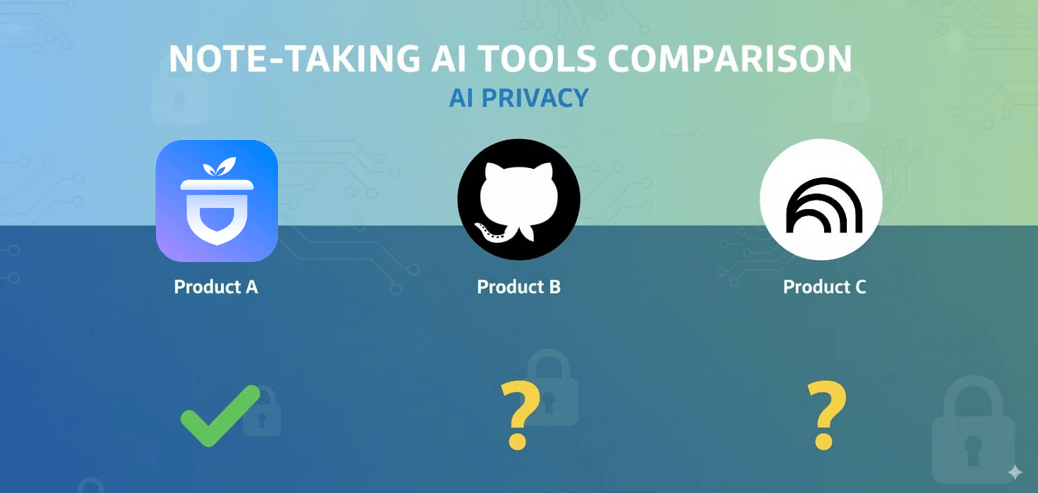
Google's NotebookLM stands out for three key factors—synthesizing information from multiple sources, providing concise summaries, and reducing hallucinations. It helps users interact with documents through AI-powered research and note-taking, or even more engaging interactions like converting resumes into podcasts. For those already in the Google ecosystem, NotebookLM offers smooth integration and a streamlined interface.
However, NotebookLM isn't perfect for everyone. This guide will help you navigate the best alternatives based on your specific needs—whether you prioritize privacy with local processing, need offline access, want more customization options, or seek better organizational features for long-term knowledge management.
Local, private, and powerful—analyze documents and research with 50+ AI models, all offline on your device.
CONTENT:
Why Look for NotebookLM Alternatives?
NotebookLM is an excellent tool, but it's not perfect for everyone. Here are the main reasons why you might want to explore other options.
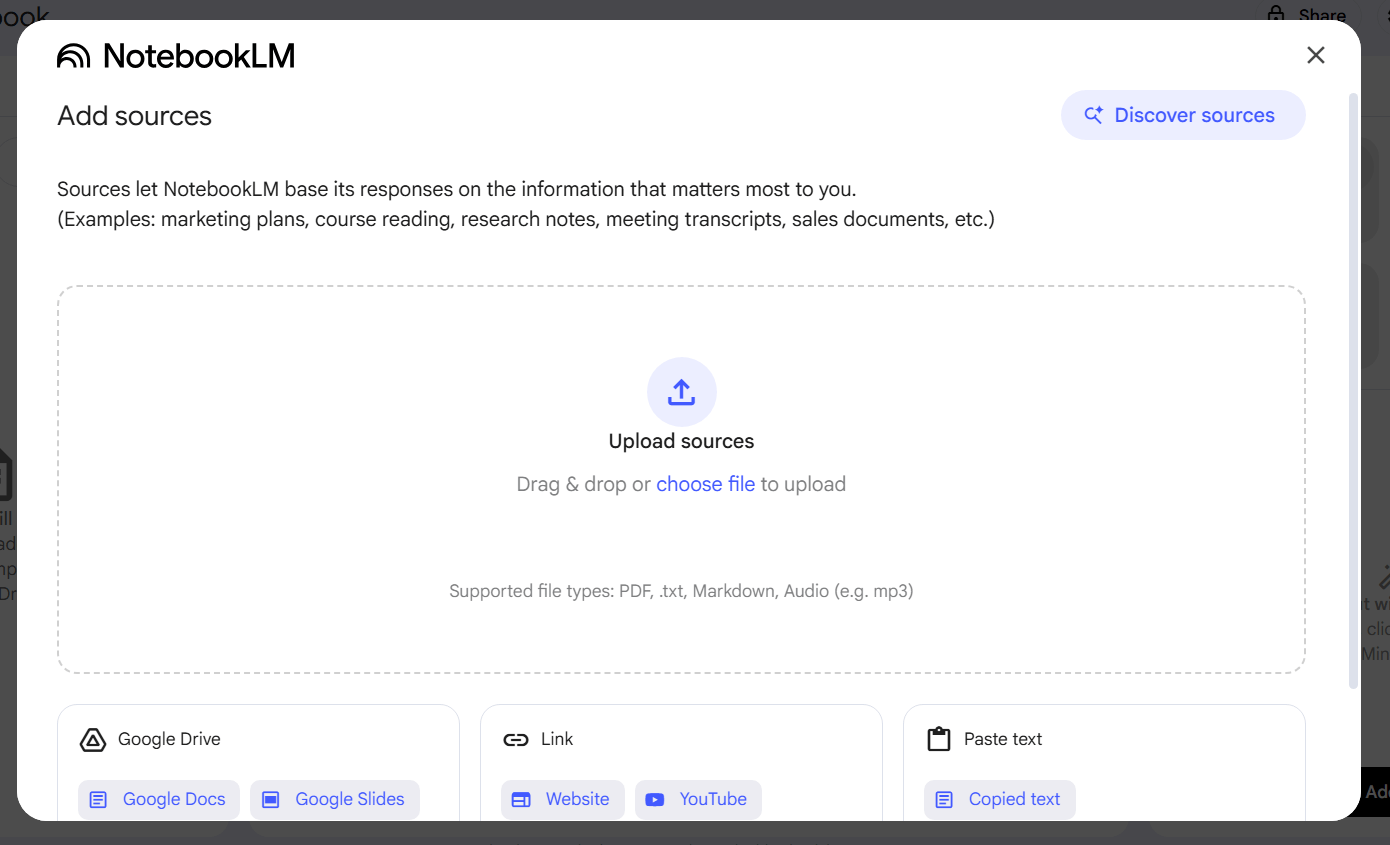
Document Interpretation Challenges
NotebookLM can struggle with complex document interpretation when multiple files are active. In my tests, analyzing eight candidate resumes at once and asking, ‘What programming languages does Sarah know?’ returned a blended answer pulling details from multiple candidates. For HR workflows, keeping all candidates’ documents active while evaluating one can produce mixed context and confusing results because NotebookLM reads from all sources simultaneously.
Privacy and Data Security Concerns
Professionals handling confidential information, client data, or proprietary research may prefer local processing over cloud-based services for complete data control.
Internet Dependency Issues
NotebookLM requires constant internet connectivity, creating problems when traveling, in areas with poor connection, or when offline access is needed.
Limited Customization Options
NotebookLM doesn't offer flexibility in choosing different AI models or approaches. Different research scenarios might benefit from various AI methods, but you're stuck with one option. As one user explained, "I needed another app mainly for journals and writing for literature so that I can keep my work organized. I find it challenging to do so in Google notes, which is why I prefer using different note-taking apps for different categories."
Organizational Limitations
While NotebookLM excels at document analysis, it lacks robust organizational features for long-term knowledge management across multiple projects and categories.
Who Should Consider Alternatives?
You might benefit from exploring alternatives if you're a:
- Researcher who needs offline access to documents
- Professional handling sensitive or confidential information
- Writer looking for stronger organizational features or specialized functions
- Developer wanting more control over AI models and processing
For those seeking more control over their data and processing, local alternatives like Nut Studio offer compelling solutions that address many of these limitations while keeping your information secure and accessible offline.
Cloud-Based Alternatives to NotebookLM
If you like the convenience of cloud tools but want different features, these platforms stand out:
1 Notion
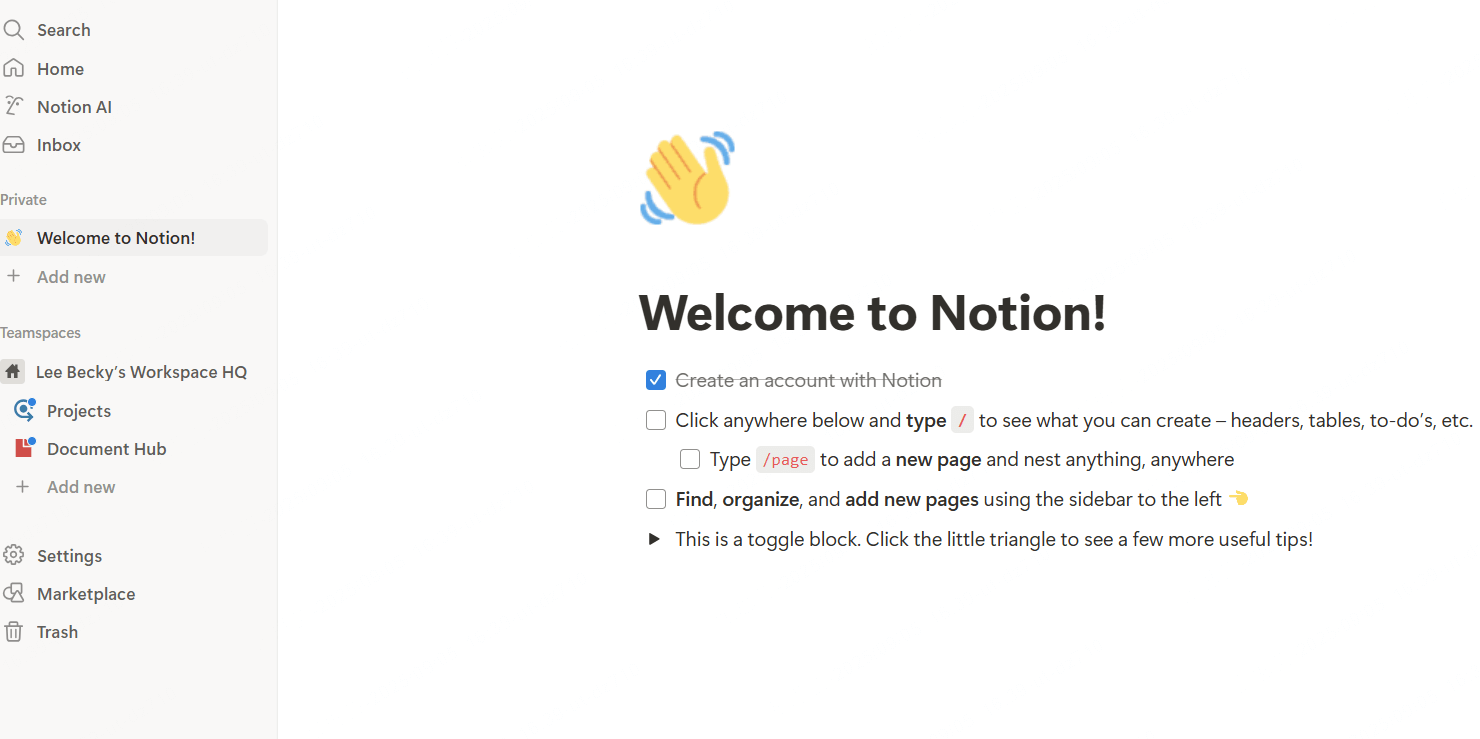
Notion offers a comprehensive workspace that combines note-taking, project management, and AI-powered features. Its strengths lie in customizable templates and robust databases, making it a strong choice for users who need both writing and organization. While using Notion to structure data for a market research report, I found its database tools extremely effective for cross-referencing findings across multiple studies. However, compared with NotebookLM's more focused synthesis, Notion provides less sophisticated document-interpretation capabilities.
- Flexible and powerful database system – supports everything from simple notes to complex project tracking.
- Highly customizable workspace with extensive template library.
- AI-powered summarization and cross-device synchronization.
- Suitable for heavy note-taking enthusiasts who want both function and structure.
- Steep learning curve; the interface can feel overwhelming for simple tasks.
- No offline mode, making it unreliable for on-the-go use.
- Poor iPad experience—users often find it frustrating on tablets.
- Content layout feels "too big" for lengthy notes, reducing readability.
- Limited data visualization tools and restrictive column setup.
Best For: Power users who need a customizable all-in-one workspace for structured notes and project management.
2 Saner.ai
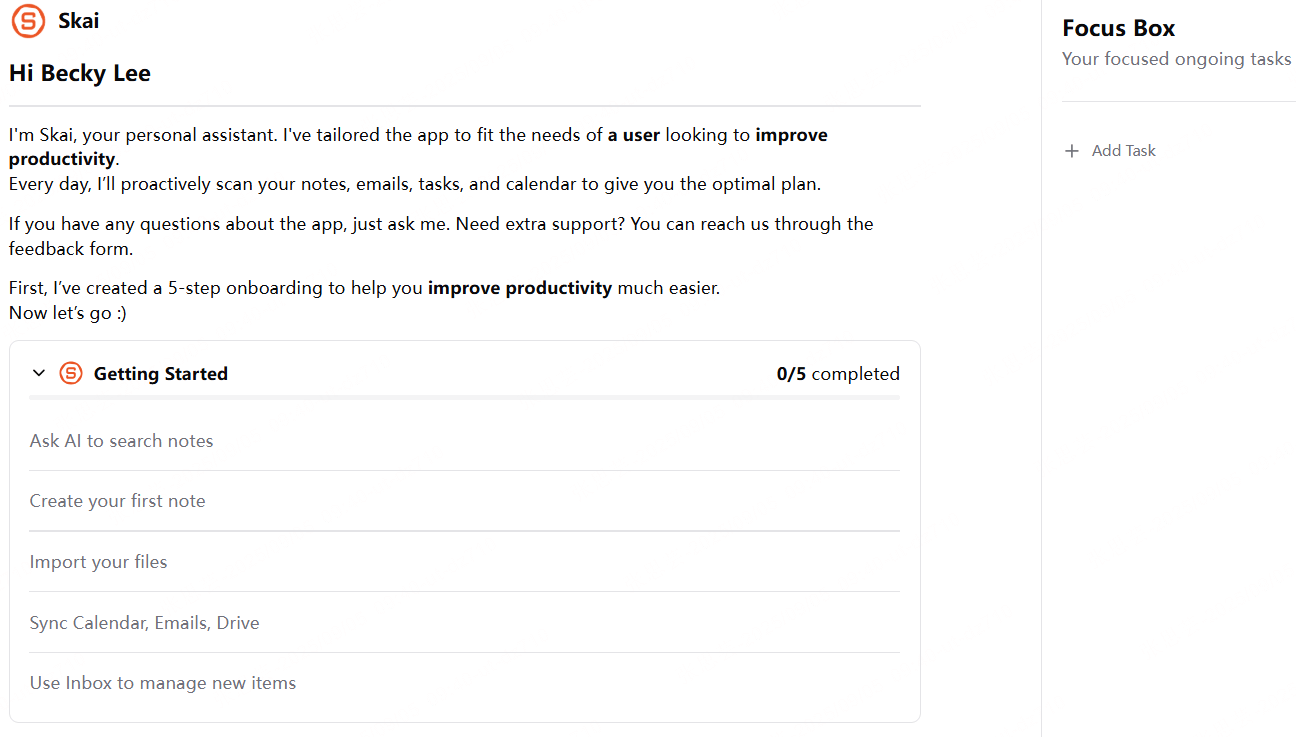
Saner.ai positions itself as an ADHD-friendly alternative to traditional note-taking platforms. It focuses on accessibility and reducing cognitive load, offering guided processes that simplify research and note organization.
- ADHD-specific features designed to reduce distraction and improve focus.
- Simplified interface that lowers cognitive load.
- Guided onboarding process for easy setup.
- Provides sample notes to help users start quickly.
- Onboarding guide cannot be skipped, which may frustrate experienced users.
- Limited scalability—less suitable for advanced or complex projects.
- Missing advanced features such as rich linking, charts, or in-depth knowledge management.
- No offline version available.
Best For: Users with ADHD or anyone who prefers a lightweight, guided workflow for research and note-taking.
3 GPT-5
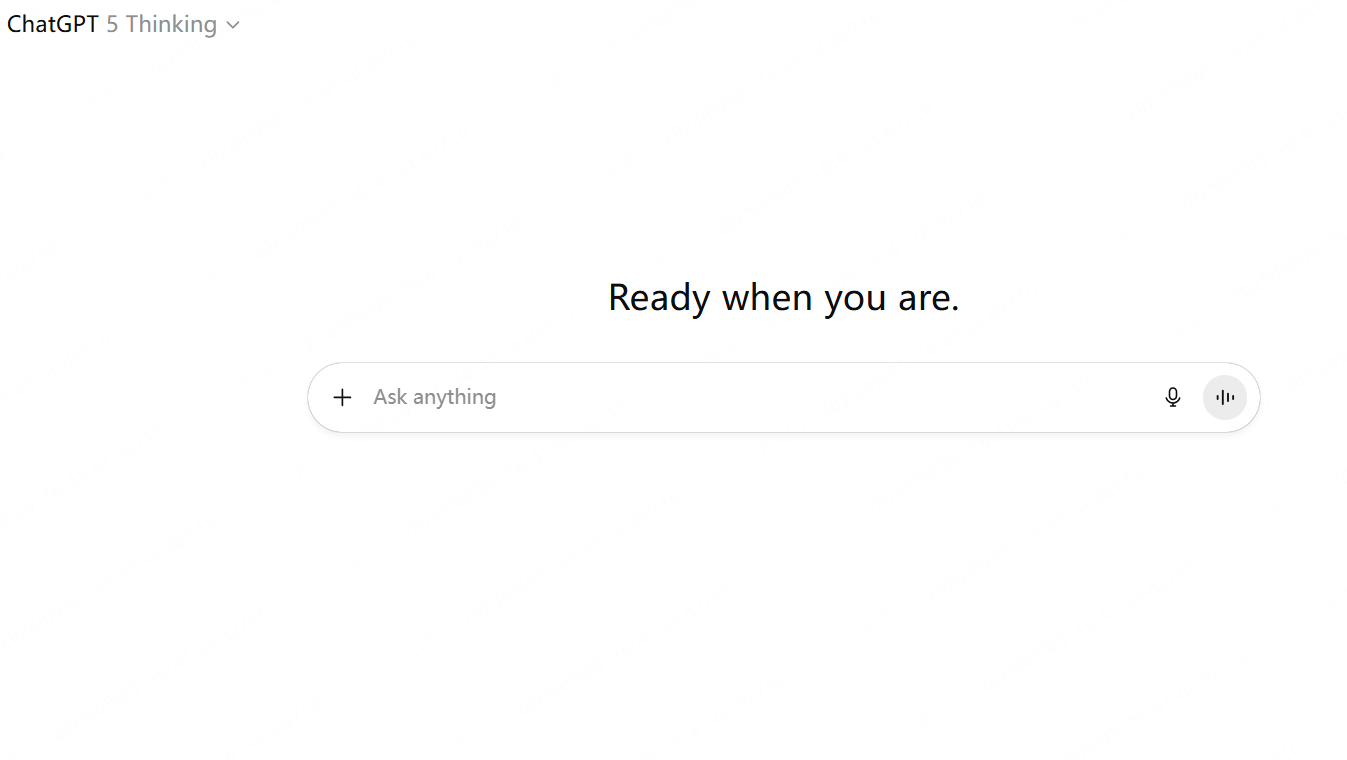
Unlike specialized note tools above, GPT-5 is a general-purpose AI engine that adapts to multiple contexts: from drafting professional reports and creative writing to summarizing datasets or assisting with coding.
- Extremely versatile—handles writing, coding, summarization, data organization, and creative generation.
- Capable of producing tables, structured outputs, and some data visualizations.
- Rich ecosystem integrations via APIs, plugins, and wrappers.
- Creativity-focused—ideal for open-ended tasks like brainstorming or story writing.
- Hallucinations are common in long documents (20+ pages), reducing reliability for academic or study tasks.
- Higher cost and compute requirements compared to single-purpose apps.
- Cloud-based usage introduces privacy trade-offs versus fully offline solutions.
- Not primarily a "notebook" tool—it generates from prompts rather than offering structured organizational systems.
Best For: Users who want a flexible AI partner for content creation, research, and productivity across multiple domains.
Local and Open-Source Alternatives to NotebookLM
Open-source and self-hosted tools give you data control (on-prem/offline), cost control (no per-seat SaaS fees), and deep customization (plugins, model choices, UI tweaks) that many cloud tools can't match.
1 Nut Studio
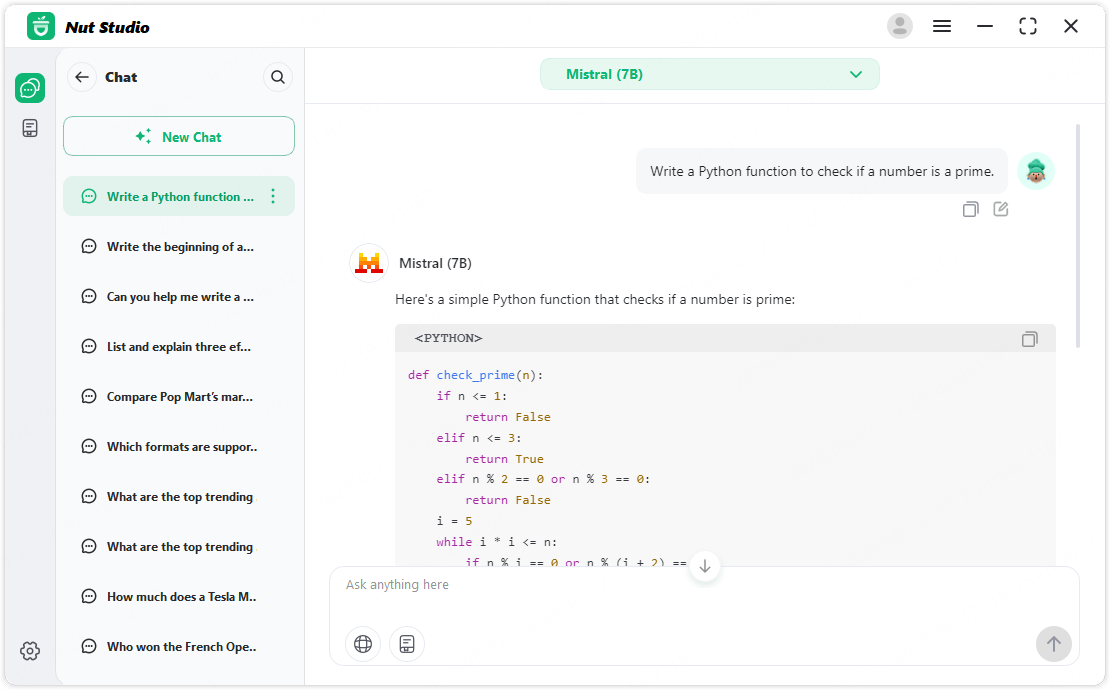
Nut Studio is an all-in-one local platform that aims to make LLM/SLM workflows accessible to both technical and non-technical users. It prioritizes a clean, beginner-friendly interface over deep "developer-only" complexity. Key capabilities include model download/management (with guidance on what your hardware can run), multi-model chat, custom AI agents, local knowledge-base ingestion, and MCP-style tool integrations.
- Beginner-friendly setup with guided model selection based on your hardware.
- All-in-one UX (models, agents, file-KB) rather than juggling multiple tools.
- Local-first workflows emphasize privacy and offline use.
- Extensible via tools/agents for practical tasks (research, writing, coding).
- Ecosystem size smaller than long-running FOSS projects.
- Advanced "power-user" knobs may be limited compared to DIY stacks.
- Hardware-bound: very large models still need strong GPUs or quantized trade-offs.
Best For: Creators and teams who want a guided, local, privacy-first NotebookLM alternative without stitching together multiple apps.
2 LobeChat
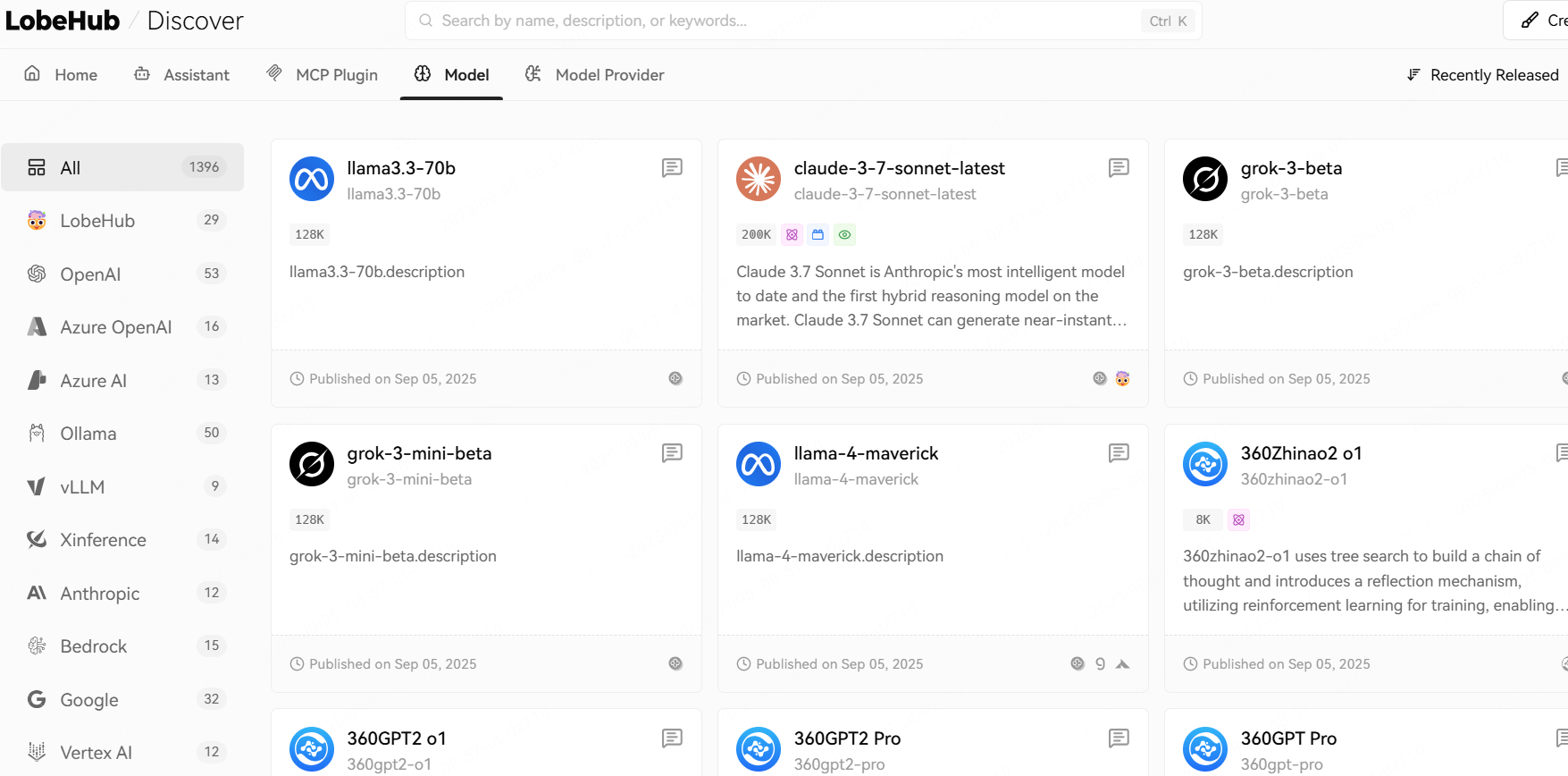
- Open source + Apache-2.0 license, active community.
- Broad model choice (cloud or local via Ollama) and multi-modal support.
- Built-in KB/RAG with file uploads; expanding MCP ecosystem for local tools.
- Flexible self-hosting with server/database deployment docs.
- Self-host complexity (Docker, DB, env vars) versus a turnkey desktop app.
- You manage keys/quotas for cloud providers; local models require Ollama/GPUs.
- Feature depth varies by plugin—some assembly required for advanced pipelines.
Best For: Teams who want a beautiful, hackable, open-source chat/RAG workspace that can run cloud or local models and are comfortable self-hosting.
3 AnythingLLM
AnythingLLM is an all-in-one Desktop & Docker application with built-in RAG, AI agents, a no-code agent builder, and MCP compatibility. It can run locally (desktop) or as a multi-user self-hosted server via Docker.
- Desktop app for quick local start; Docker for teams/multi-tenant.
- RAG out of the box with agents and a growing plugin/extension ecosystem.
- Local-by-default posture; combine with Ollama or your preferred provider.
- Large, active repo and documentation for deployment.
- Server ops (backups, updates, GPUs) are on you when self-hosting.
- Advanced analytics/workflows may still need custom wiring.
- Cloud features (if used) can re-introduce API costs and privacy trade-offs.
Best For: Individuals and teams who want a practical, "works-today" RAG + agent workspace with both desktop and server options.
4 Open-Source Alternatives on GitHub
In addition to local LLM tools above that can be installed directly, there are several highly-rated resources on GitHub worth exploring:
| Project | Stars | Forks | Contributors | Latest Release |
|---|---|---|---|---|
| SurfSense | 7,600 | 565 | 32 | 2025/5/22 |
| Open Notebook | 4,100 | 419 | 3 | 2025/7/28 |
| NotebookLlama | 1,400 | 187 | 7 | 2025/7/17 |
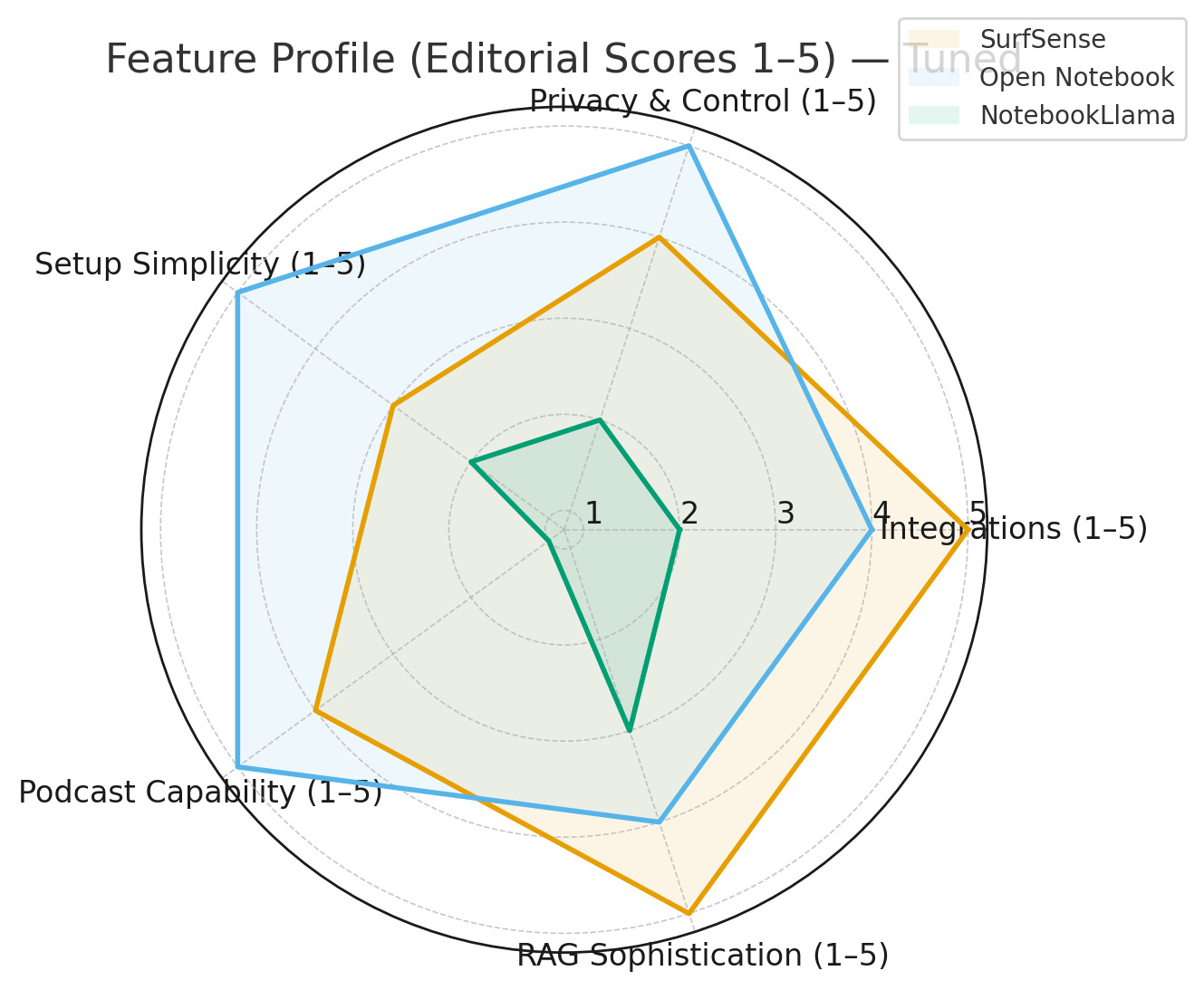
SurfSense
Best for: Teams who want deep integrations, 2-tier RAG, and podcast-in-seconds
Why it stands out: Huge connector set (Slack, Jira, Notion, YouTube, GitHub, Gmail, etc.), Hybrid + hierarchical RAG with >100 LLMs and 6000+ embeddings, Perplexity-like cited answers, 3-minute podcast generation in under 20 seconds.
Open Notebook
Best for: Creators who want flexible podcast scripting, reasoning models, and simple Docker start
Why it stands out: 16+ AI providers (OpenAI, Anthropic, Ollama, LM Studio, etc.), Multi-speaker podcasting (1-4 voices, custom profiles), Strong note + chat UX with three-pane interface, Privacy-first approach with self-hosting anywhere.
NotebookLlama
Best for: Developers already in LlamaIndex/LlamaCloud ecosystem who want guided pipeline
Why it stands out: Pre-wired to LlamaCloud extraction + indexing, Postgres + Jaeger via Docker Compose, MCP server + Streamlit app integration.
No Docker, no coding, no API keys. Just download, choose your model, and start analyzing documents locally in minutes.
Getting Started with Nut Studio
As a content creator, I often need to organize keyword data. I am used to storing the data on my computer and setting up a command for analysis. Even if my content is in Excel format, Nut Studio can analyze and help me filter it well. Here are the specific steps you can refer to.
How to use Nut Studio for Document Analysis:
Step 1: Create an Excel file of your keywords analysis.
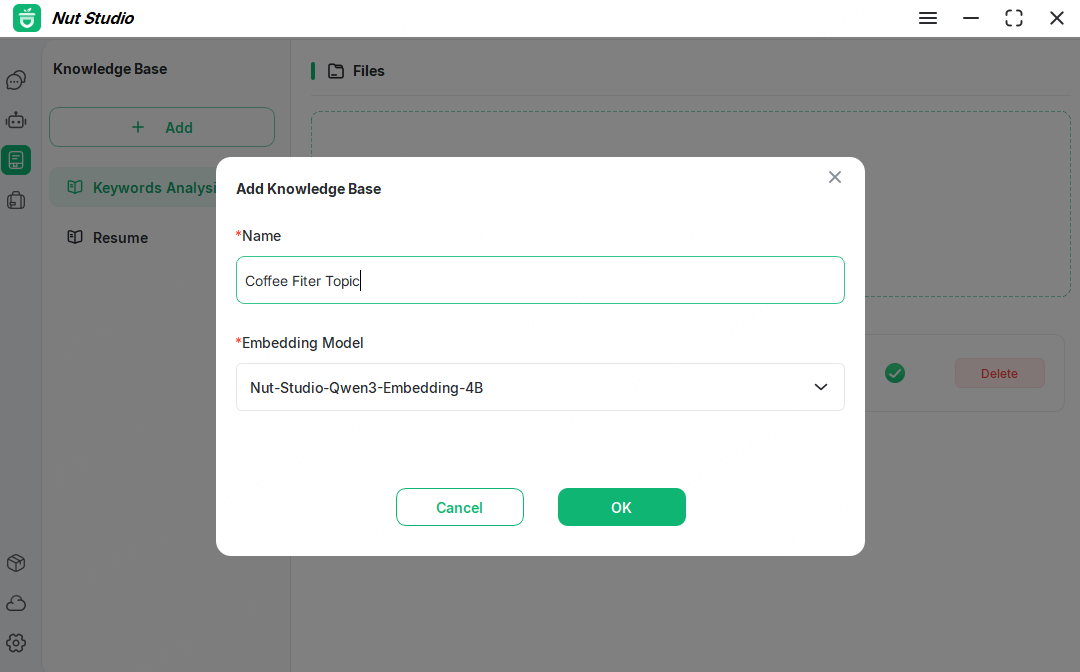
Step 2: Upload your keywords in a knowledge base (it's better one type of topic one knowledge base to lower hallucinations and information confusion).
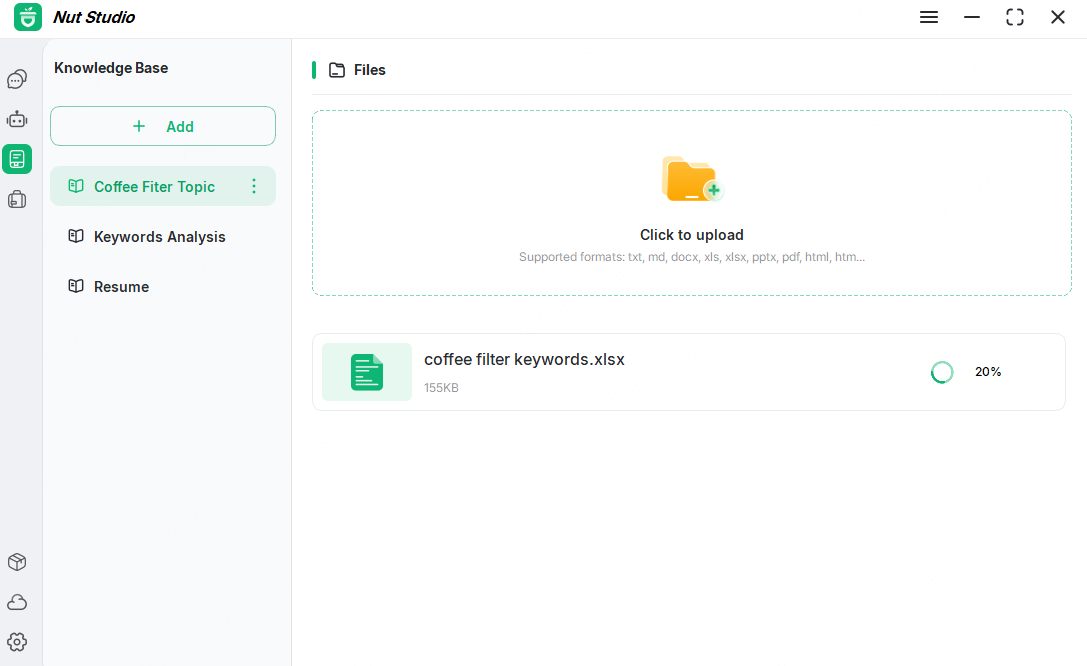
Step 3: Creating an Agent with prompt.
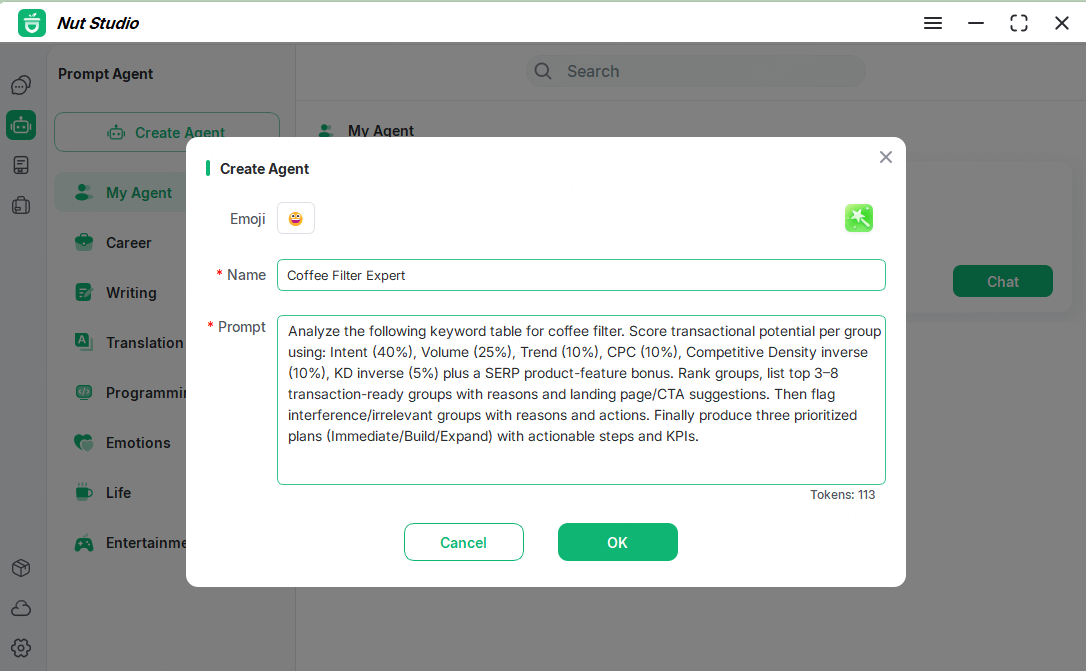
Step 4: Ask for analyzing content and get the result.
Frequently Asked Questions (FAQ)
What is the Best Free Alternative to NotebookLM?
Nut Studio stands out as the best alternative to NotebookLM, offering access to 50+ AI models. It combines the document analysis capabilities of NotebookLM with the flexibility of choosing from dozens of open-source language models, making it ideal for users who want powerful AI research tools without information security concerns.
Can I Use NotebookLM Alternatives Offline?
Yes, several NotebookLM alternatives work completely offline, with Nut Studio being the most user-friendly option. Unlike NotebookLM, which requires constant internet connectivity, Nut Studio processes all documents and AI interactions locally on your device. This means you can analyze documents, generate summaries, and chat with your knowledge base even without internet access. Other offline options include LobeChat and AnythingLLM, though they typically require more technical setup.
How do NotebookLM Alternatives Compare to ChatGPT?
NotebookLM alternatives, particularly local solutions like Nut Studio, offer significant privacy and control advantages over ChatGPT. While ChatGPT processes your data on OpenAI's servers, local alternatives keep all your documents and conversations private on your own device.
Do I Need Coding Skills to Use NotebookLM Alternatives?
No coding skills are required for most user-friendly alternatives like Nut Studio, which emphasizes a no-code approach with guided setup and intuitive interfaces. However, some open-source alternatives like those found on GitHub may require basic technical knowledge for installation and configuration. The trade-off is between ease of use and customization flexibility.
Conclusion
NotebookLM is excellent at synthesizing, summarizing, and reducing hallucinations across your sources—especially if you live in the Google ecosystem. But if you need offline access, tighter privacy, model flexibility, or deeper organization, the alternatives above can better fit specialized workflows for researchers, writers, and teams.
Whether you prefer a turnkey cloud solution or a local, privacy-first setup, start by matching your needs to the trade-offs: convenience vs. control, simplicity vs. customization. If you want an easy on-ramp to local workflows without stitching together multiple apps, consider trying a local option like Nut Studio to keep your data private while gaining powerful research and note-taking features.
Nut Studio makes document analysis simple and private. Download now and experience the power of local AI research.
-
Best Animes to Learn Japanese in 2025
Discover 14 anime perfect for learning Japanese, from beginner to advanced levels. Get practical tips on using anime and AI to improve your Japanese skills effectively.
10 mins read -
How ChatGPT Helps with Tests: 10 Methods for Preparation
Learn 10 best ways to use ChatGPT for test and exam prep. Get personalized quizzes, instant feedback, and study smarter for SAT, TOEFL, university finals & more.
6 mins read -
How to Use ChatGPT to Learn a Language? 5 Free Ways Tested
Unlock fluency faster with AI language learning. Get 5 powerful ChatGPT strategies and prompts for personalized vocabulary, grammar, and speaking practice.
10 mins read -
45+ Roleplay Prompts for ChatGPT & LLMs: Fantasy, Romantic and Fun
Discover 45+ ChatGPT roleplay prompts! From Fantasy, Romantic to Fun character ideas, try these creative AI character scenarios for fun conversations.
10 mins read -
20 Things You Should Never Tell ChatGPT
Stop letting ChatGPT waste your time. Discover 20 things that AI kill your focus and efficiency, while also learning the essential security rules to work safely.
10 mins read -
Best ChatGPT Prompts for Academic Writing in 2025 [Templates Included]
Discover best ChatGPT prompts for academic writing. Get templates for each step that actually work. Test locally with Nut Studio.
10 mins read
 Nut Studio
Nut Studio














Was this page helpful?
Thanks for your rating
Rated successfully!
You have already rated this article, please do not repeat scoring!